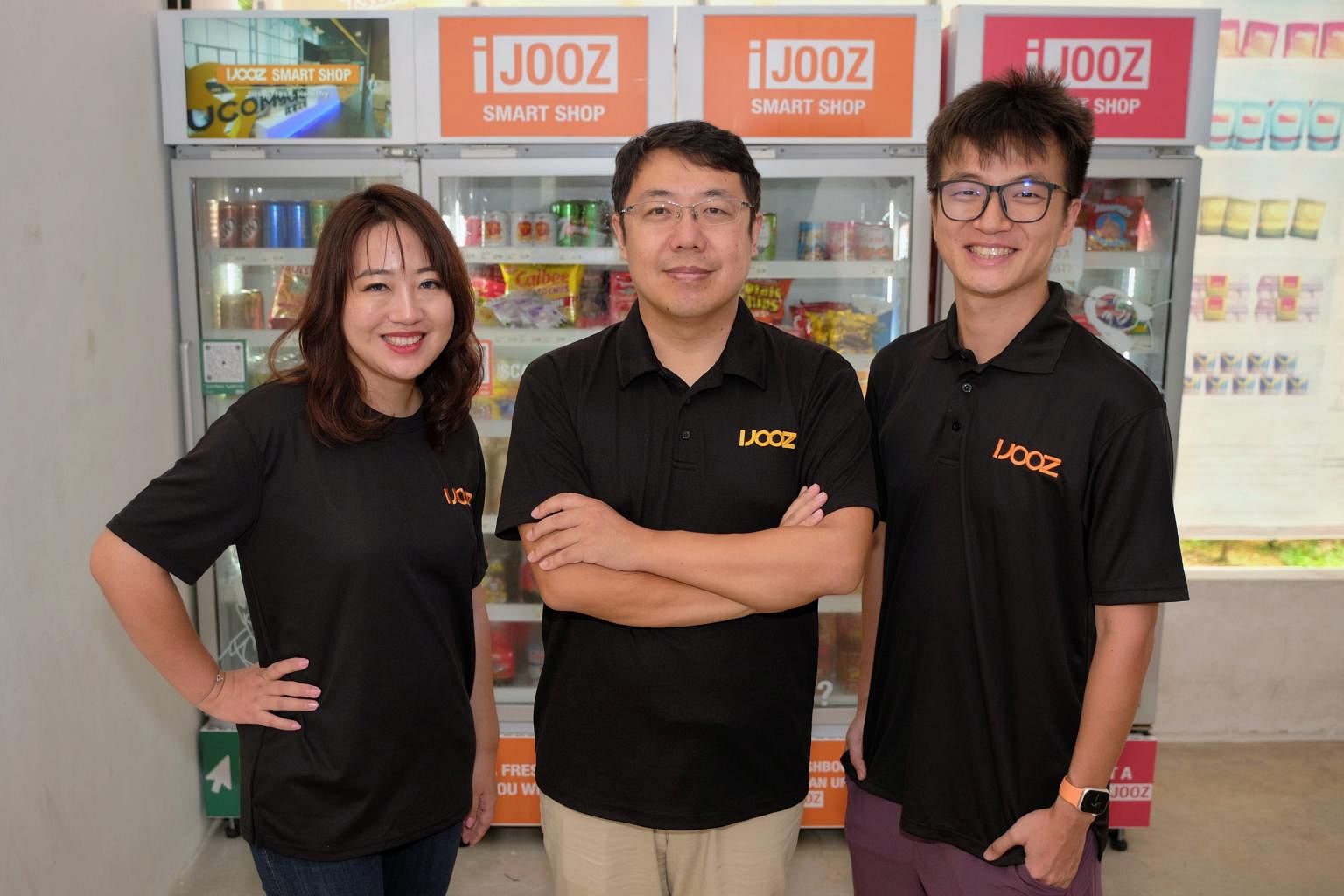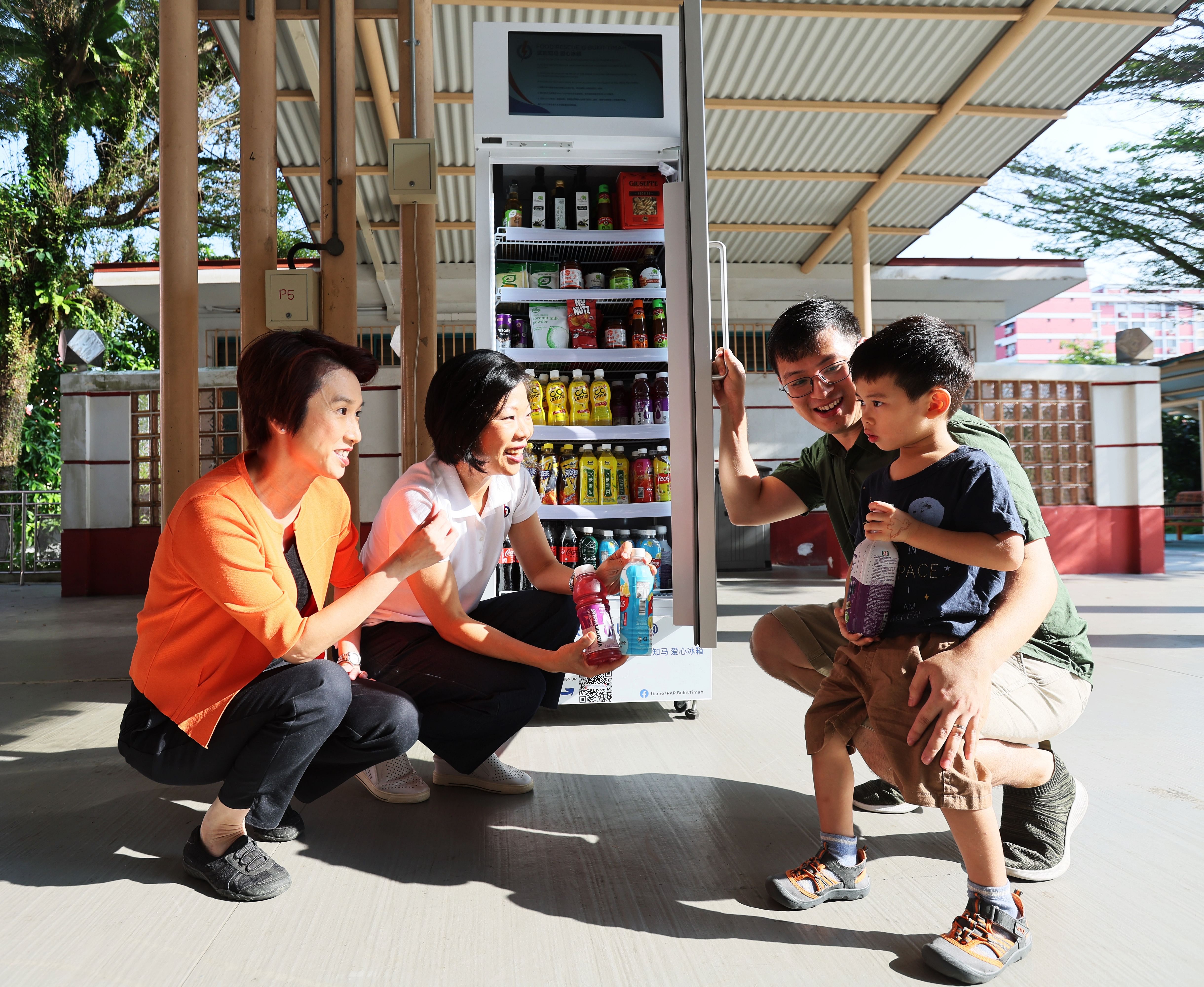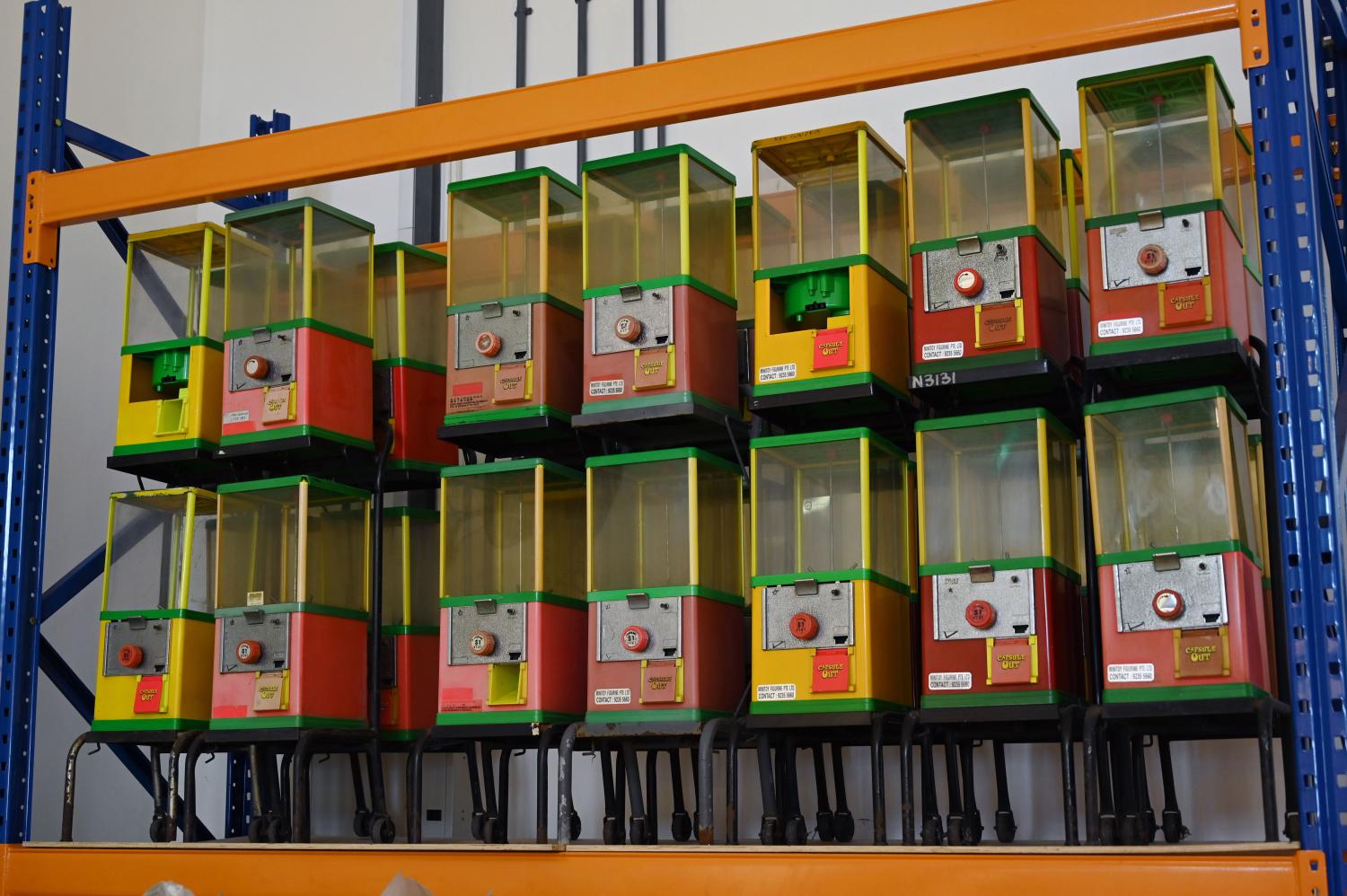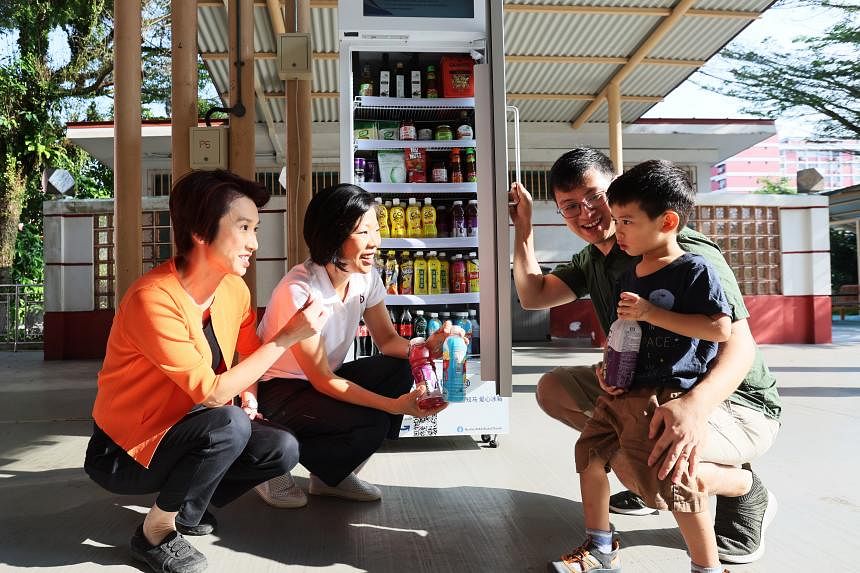
SINGAPORE – Since August, Mr Isaiah Peh has been taking snacks like cookies and potato chips, and packet or bottled drinks, from a fridge placed at one of the void decks of Toh Yi Drive estate, where he lives.
The 33-year-old said: “It is very convenient. All you need is to set up an account, and you get five credits to help yourself to any five items in the fridge per month, at any time.”
The “smart” community fridge was one of two that were officially launched on Saturday – one in Toh Yi Drive estate within the Bukit Timah constituency, and another in Guilin estate within the Bukit Gombak constituency.
Close to 500 residents have signed up as part of the pilot initiative by the Women’s Wing of the People’s Action Party (PAP) that started in August to reduce food wastage and manpower needed to run community fridges.
Unlike existing community fridges, residents do not need to queue and wait for their turn for volunteers to distribute food and drink items. Residents who have set up accounts online can access the fridges any time to get their food and drinks.
Any resident can scan a QR code on the door of the fridges to set up an account. After filling a form with their names and contact details, their account will be activated after the information has been processed by iJooz. They can then take up to five items per month, at any time that is convenient to them.
The fridges and some food items are provided by iJooz – a vending machine company that uses artificial intelligence technology – and restocked by Ryan’s Grocery, a grocer and butcher. The items are usually replenished within 10 to 15 days by both iJooz and Ryan’s Grocery.
iJooz throws away about 10,000 food and drink items per month. With this initiative, about 3,000 items from the company, such as snacks, go to the two fridges. Ryan’s Grocery has been able to lower its food waste by 80 per cent by participating in this programme.
Ms Sim Ann, Senior Minister of State for National Development and Foreign Affairs, said volunteers carry out regular checks on the smart fridges.
The software system also prompts organisers when stock is below 30 per cent, she added. “When the stock is replenished, we can send out message alerts to inform residents and encourage them to come by and collect the food items.”
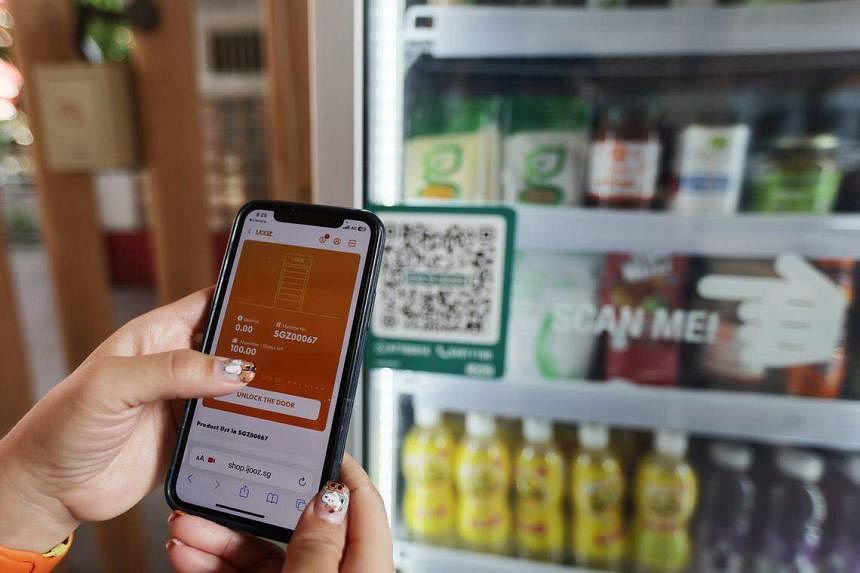
The fridges are also equipped with a camera each, to monitor that residents do not take more than they are allowed. It also keeps residents updated of their balance credit.
The first community fridge was started by Mr Baey Yam Keng, Senior Parliamentary Secretary for Sustainability and the Environment, and Transport, at the void deck of Block 441 in Tampines Street 43 in February 2018.
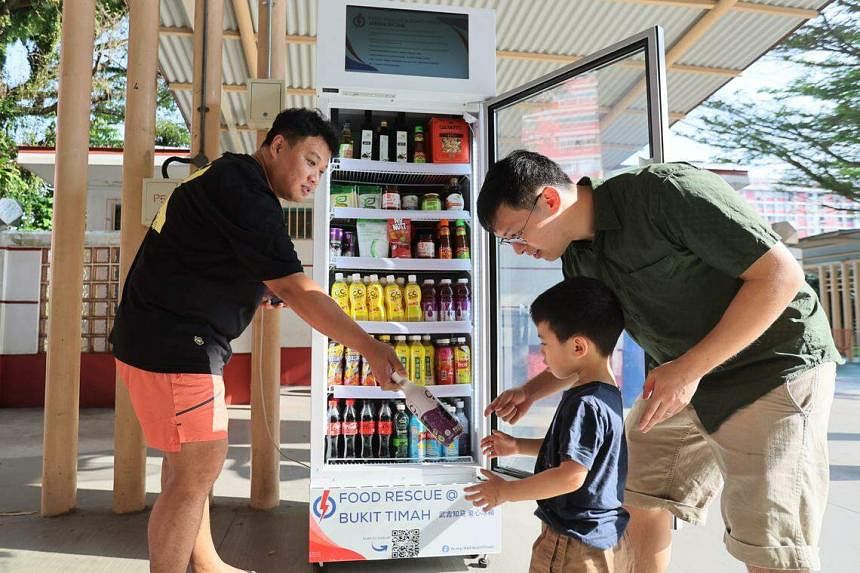
Several such fridges have since been set up around Singapore, mainly operated by residents’ committees and smaller community groups, with the aim of minimising food wastage by getting residents to share surplus food with their neighbours, as well as collecting excess food from supermarkets and grocery stores.
Mr Peh said it is a pity that unsold food in supermarkets gets thrown away.
“People avoid buying items in the supermarket with shorter shelf lives, so the supermarket eventually discards them. With the smart community fridge, it is a win-win for everyone. The supermarket can donate them to the smart community fridge to avoid food wastage, and residents can get them for free.”
Ms Sim, who is also chairwoman of PAP Women’s Wing and branch chairwoman of PAP Bukit Timah division (Holland-Bukit Timah GRC), said: “Although the project’s key objective is to reduce food waste and promote sustainability, the free food products also mean some savings for our participants.”
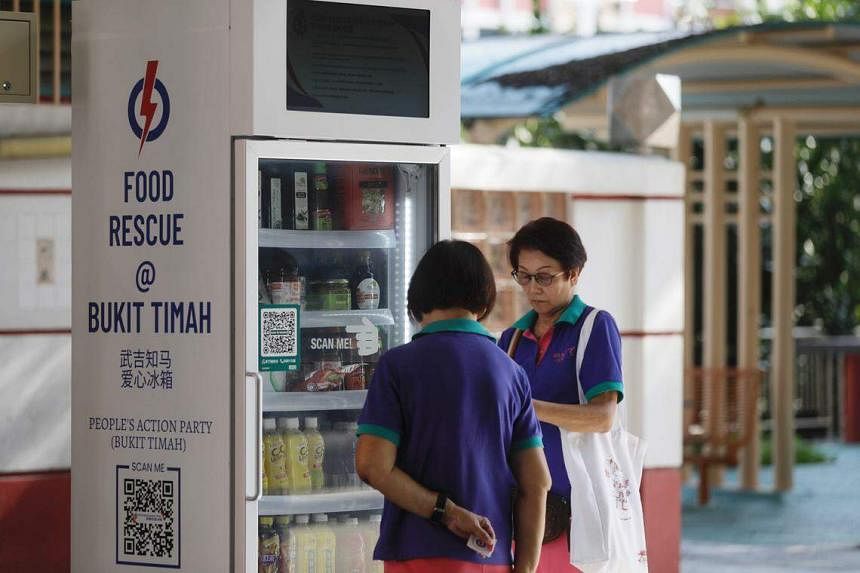
Ms Low Yen Ling, Minister of State for Culture, Community and Youth, and Trade and Industry, said it aims to raise awareness in Bukit Gombak about food wastage and how everyone, from retailers to residents, can play a part in managing waste.
Ms Low, who is also vice-chairwoman of PAP Women’s Wing and branch chairwoman of PAP Bukit Gombak division (Chua Chu Kang GRC), added: “We can prevent and reduce food waste at the source by planning our supplies, purchases, consumption, and storage of food more thoughtfully and carefully.”
https://www.straitstimes.com/singap...mbak-tackle-food-waste-and-improve-efficiency




